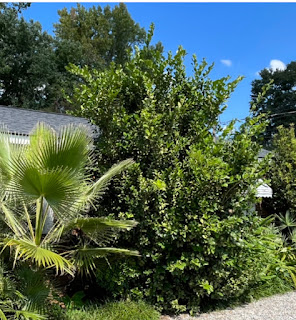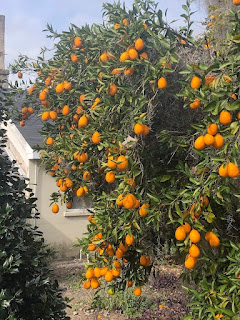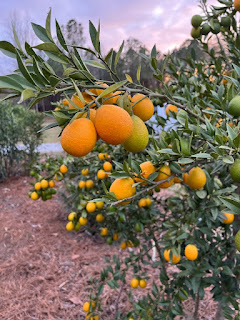
Changsha Mandarin - Cold Hardy and Sweet Changsha mandarin is an old Chinese mandarin that has a long history in the South. It is a fairly common dooryard citrus, especially along the Gulf coast, and qualifies as both an heirloom plant and a "passalong" plant. Passalong plants are those that were commonly propagated and "passed along" neighbor to neighbor in the South before large nurseries and big box stores were common. Changsha made a great passalong plant because it grows easily from seed and can grow well on its own roots. Although Changsha, like many citrus, is polyembryonic and produces seedlings that are mostly identical to the parent, small variations in seedlings produced a class of citrus rather than a single type. So it's not unusual to find dooryard Changsha mandarins that vary somewhat in taste and habit - some trees are strongly upright (which is the type), others weep much like Satsuma; some produce fruit that can be dry and bland, others pr...



